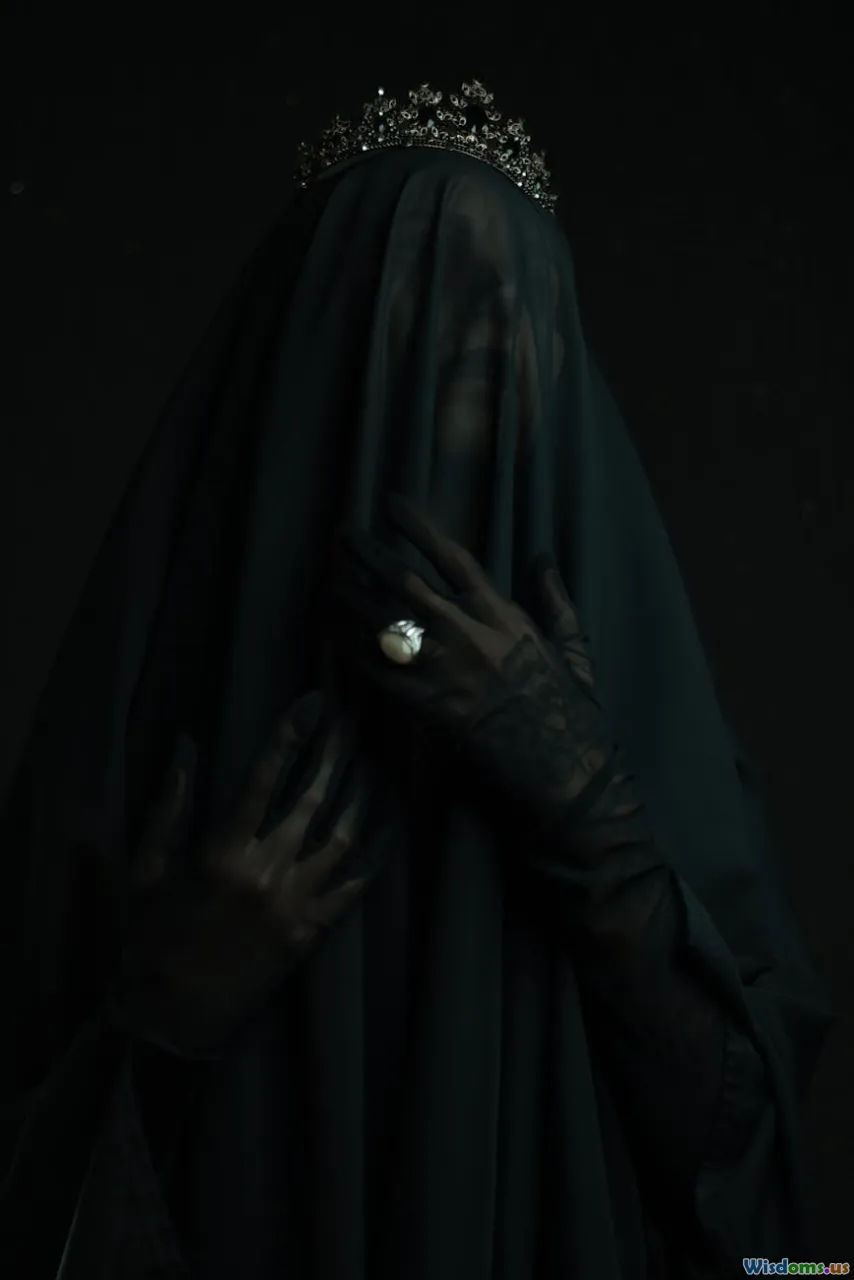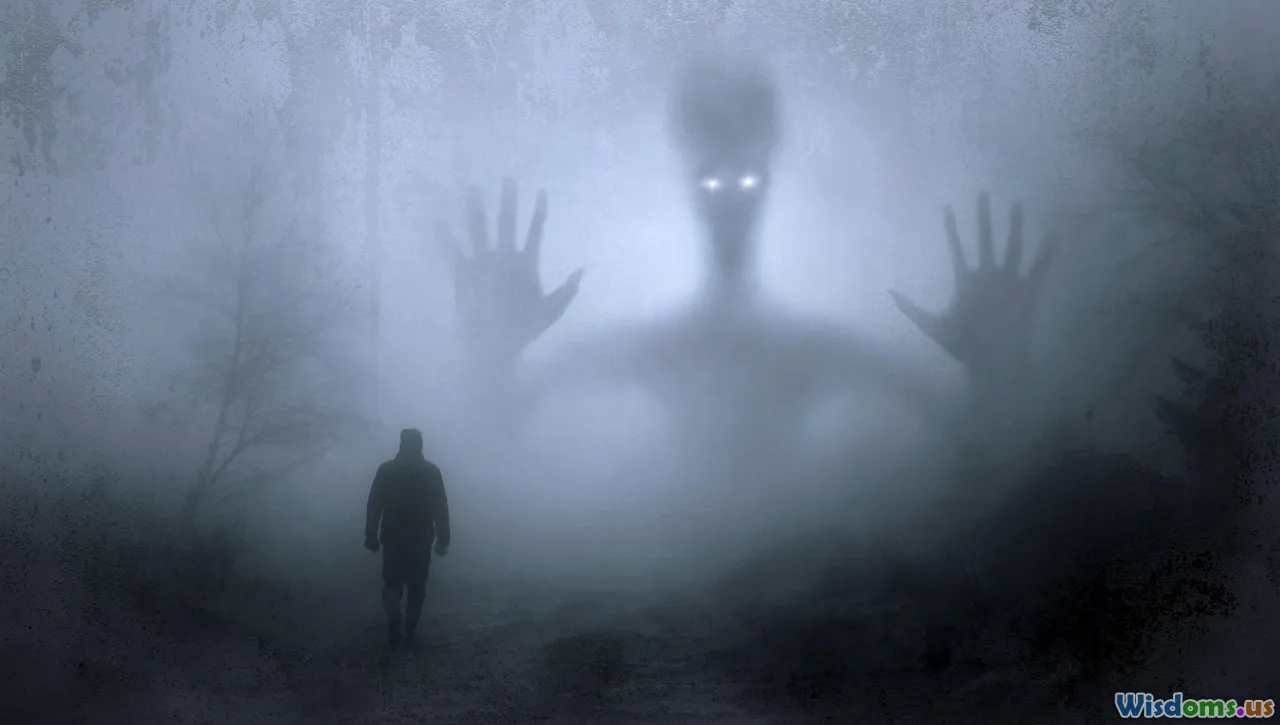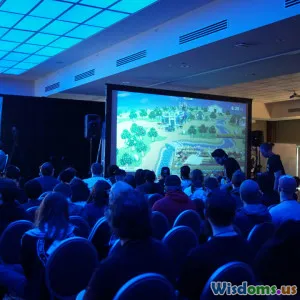
Top Five Highly Anticipated RPGs Releasing This Year
14 min read Explore the top five most anticipated RPGs set to release this year and discover what makes each game a must-play for RPG enthusiasts. (0 Reviews)
2024’s Most Anticipated RPGs: Five Epic Adventures Await
Role-playing games (RPGs) have returned in full force in 2024, propelling gamers into breathtaking worlds overflowing with imagination, challenge, and narrative depth. Studios are pushing creative and technical boundaries, blending immersive storytelling with refined mechanics. This year’s release calendar is stacked with innovations that promise to set new standards in the genre. Whether you’re a seasoned explorer of fantastical realms or newly curious about RPGs, these five upcoming titles deserve your full attention. Let’s journey through the year’s most anticipated adventures and discover what makes each a game-changer.
Elden Ring: Shadow of the Erdtree

No list would be complete without the return to FromSoftware's mythical universe. "Shadow of the Erdtree" is more than just an expansion—it’s a full-scale adventure poised to amplify Elden Ring’s already legendary scope.
Secrets Beyond the Lands Between
“Shadow of the Erdtree” plunges players into unexplored regions alongside new questlines and enigmatic bosses. FromSoftware, renowned for masterpieces such as Dark Souls and Bloodborne, is raising the stakes: expect labyrinthine dungeons, cryptic lore, and tough-as-nails enemies tailored to veterans and newcomers alike. Visually, teaser footage hints at shadowy forests, longtime fan theories about the Erdtree’s roots, and new battlegrounds featuring weathered ruins and colossal adversaries.
Enhanced Gameplay Mechanics
Rumors swirl about new weapon classes, expanded magic systems, and mounts with unique abilities. Overhauls to stealth and parry systems promise to keep even experienced Tarnished on their toes. Despite scarcer resources on exact details, every new FromSoftware product historically redefines action RPG mechanics, as Sekiro: Shadows Die Twice did with its focus on rhythm and timing. "Shadow of the Erdtree" looks set to provide the next evolution.
The Weight of Expectations
Critically, “Elden Ring” remains hailed for its player freedom and interconnected narrative. With the expansion poised for late 2024, its launch will be a pivotal moment, especially for those who scour every nook for secrets or strategize meticulously around bosses. Community speculation and deep lore analysis only intensify anticipation—look for packed message boards upon release as seasoned players marvel (and sometimes lament) at punishing new challenges.
Final Fantasy VII Rebirth

Square Enix aims to delight old fans and new audiences with the second installment in their ambitious reimagining of a genre-defining classic. “Final Fantasy VII Rebirth” dives deeper into its richly built world while updating gameplay for modern sensibilities.
Expanding the Lore and the World
The scope this time reaches far beyond Midgar, venturing into iconic locations such as Kalm, Junon, and the bustling Gold Saucer amusement park. This broadening will not just be geographical; expect pivotal relationships and twists involving mainstays like Cloud, Tifa, Aerith, and the iconic antagonist Sephiroth. Early gameplay previews tease seamless transitions between story-centric sequences and open-world exploration.
Innovation Meets Nostalgia
Square Enix faces a delicate balancing act: maintaining Final Fantasy VII’s revered essence while infusing production values worthy of 2024. The battle system finely meshes turn-based tactics with engaging real-time combat—a standout innovation from the previous remake—augmented now by refined synergy attacks and new party compositions. Add expansive side activities, crafting, and mini-games, and “Rebirth” rivals AAA western RPGs for replayability.
Why Rebirth Matters
The 1997 original was a watershed for interactive storytelling; this remake continues that tradition, echoing contemporary issues through timeless characters. With Square Enix’s familiar mastery of cinematic direction and ensemble voice acting, “Rebirth” is poised to captivate longtime loyalists and surprise modern audiences unacquainted with the original’s impact.
Avowed

From the storycrafting veterans at Obsidian Entertainment comes “Avowed”—a sprawling, narrative-driven adventure set in the universe of their acclaimed Pillars of Eternity series.
First-Person Role-Playing Elevated
Obsidian’s RPGs—such as Fallout: New Vegas and The Outer Worlds—are beloved for their player agency, consequence-driven stories, and witty dialogue. With “Avowed,” they pivot to a first-person perspective, inviting inevitable comparisons to The Elder Scrolls V: Skyrim. This shift isn't just window dressing; it’s woven into Eora’s vibrant lore and allows for a more visceral magic and melee combat system.
Customization and Freedom
Early looks at “Avowed” showcase a spell-slinging, weapon-switching protagonist able to adapt tactics on the fly through dynamic combinations: wield spells in one hand and swords in the other, tailor skill sets to diplomatic or aggressive approaches, and shape outcomes via nuanced choices. Obsidian highlights a morality system bound closely to factions and even day-to-day decisions—echoing the intricate narrative spiderwebs of their previous works.
Deep World-Building
Eora is teeming with colorful cultures, ancient ruins, rival factions, and living ecosystems. Fans of Pillars of Eternity will spot familiar gods and mythologies, yet everything is designed for easy entry by RPG newcomers. Expect evocative side-quests with multiple resolution paths and a reactivity rare in less flexible titles.
Dragon Age: Dreadwolf

Bioware's "Dragon Age: Dreadwolf" is one of the RPG world's most closely watched developments. After nearly a decade since the previous mainline title, expectations are stratospheric for a game long delayed but clearly heavily polished.
Building on a Legendary Legacy
"Inquisition" (2014) left players on a narrative cliffhanger, and “Dreadwolf” wastes no time in reigniting the central conflict. The game pivots around the enigmatic Solas—the so-called Dread Wolf—delving deeper into Thedas' dark mythologies and interwoven power struggles.
Slim pre-release details aside, Bioware is intent on modernizing classic party-based combat and expanding world dynamics. Action is promised to be more fluid, companions smarter in battle, and branching dialogue reflecting weighty consequences. Innovations in traversal, including open hubs and vertical exploration, set the stage for more cohesive worldbuilding.
Faith in Player Choice
The "Dragon Age" series set a benchmark for complex choices, internal politics, and inclusive romance arcs. “Dreadwolf” integrates these structures but also promises renewed attention to personal agency and emergent systems—where unforeseen events ripple into grand, and sometimes tragic, consequences. Imagine legacy decisions coloring encounters years later, or parties dynamically splitting in response to your allegiances.
Returning to Thedas
Early concept art and developer reveals highlight lush new regions—from teeming capitals to ancient elven ruins—plus a crisp and dark fantasy style marrying old-school Bioware world-building with current-gen technology. Community-driven speculation, coupled with Bioware’s hints at returning fan favorites and formidable new threats, has fueled countless discussions across gaming forums. No matter your prior relationship to the series, “Dreadwolf” is shaping up as a defining RPG moment this year.
Metaphor: ReFantazio

One of 2024’s most intriguing wildcards comes from Atlus, creators of the universally acclaimed Persona series. “Metaphor: ReFantazio” marks their bold step into high fantasy—retaining the distinctive flavor and artistry only Atlus can provide.
A Distinct Atlus Signature
Where Persona juxtaposed supernatural drama with high school life, “Metaphor: ReFantazio” stages its battle against fate in a magical kingdom shaken by political upheaval. Character design, blending anime tradition and European medieval motifs, features heavily stylized party members and enigmatic antagonists. The soundtrack, spearheaded by series veteran Shoji Meguro, is already praised for its unforgettable fusion of orchestral and modern elements.
Tactical, Turn-Based Brilliance
Atlus doubles down on tactical, turn-based engagements—melding classic order-driven mechanics with time-shifted, combination attacks reminiscent of “Press Turn” and “One More” systems from their other games. Persona’s social mechanics transform here into political alliances, with party bonds and factions dynamically evolving according to your choices. As in Persona 5, a calendar system and dramatic set pieces structure both daily life and world-threatening dilemmas.
New Fantasy, Familiar Genius
Metaphor: ReFantazio carves its identity with an original world—teeming with folklore, monsters, and magic. Yet, the developer’s talent at threading contemporary anxieties into compelling quests ensures that quests here mean more than fetch errands; each is an opportunity to reflect on leadership, trust, and societal fractures. RPG enthusiasts eager for narrative depth with mechanical precision may find this the year’s quintessential sleeper hit.
How to Choose Your Next RPG Adventure

With such a rich field, picking your next RPG experience can be as daunting as any in-game boss fight. Here are some actionable tips to help you decide which highly-anticipated release might be ideal for your playstyle and interests:
- Consider your narrative taste. If complex moral decisions and branching stories excite you, Dragon Age: Dreadwolf or Avowed are both promising.
- Value fast-paced, challenging combat? FromSoftware’s Shadow of the Erdtree will scratch that itch with brutal difficulty and rewarding exploration.
- Fascinated by worldbuilding and immersive settings? Final Fantasy VII Rebirth offers a lush, emotionally charged environment.
- Fan of stylistic art and unique systems? Atlus’s Metaphor: ReFantazio guarantees a distinct anime-inspired spectacle woven into every system.
- Love character-driven drama? Both Dragon Age and Final Fantasy franchises are peerless at blending ensemble casts with deep personal arcs.
Don’t hesitate to browse developer interviews, technical overviews, and gameplay showcases before pre-ordering. Also, consider replay value if you’re seeking a long-term gaming investment—a key distinction as RPGs, more often than not, offer thousands of hours thanks to their divergent paths and varied character builds.
Much of the magic in these releases will come from community engagement: guides, speedruns, fan lore, and celebratory memes. So, as release dates approach, immerse yourself in online forums, Twitch channels, and review aggregates to gather final impressions.
This year, the RPG genre is not only meeting demands—it is redefining them. Whether you battle legendary foes beneath an ancient tree, uncover lost memories in a futuristic city, or negotiate in a court of shifting alliances, adventure calls. 2024 awaits, controller in hand.
Rate the Post
User Reviews
Popular Posts














